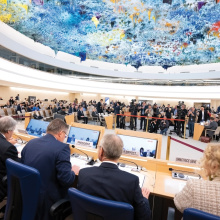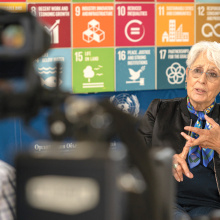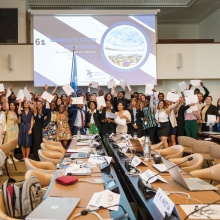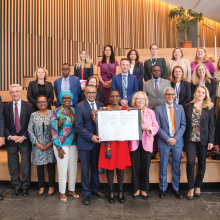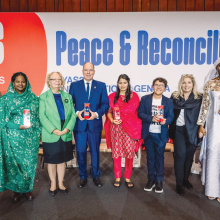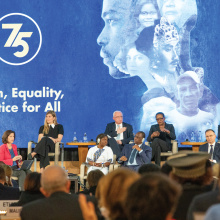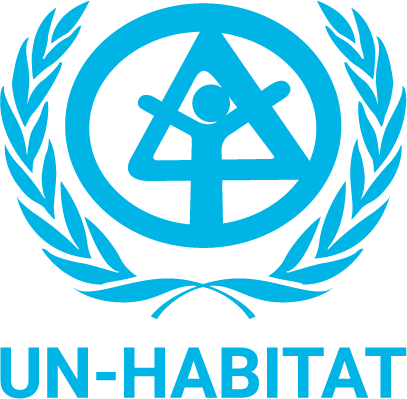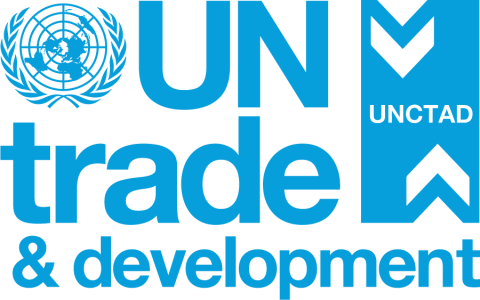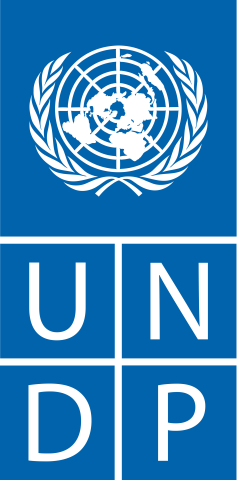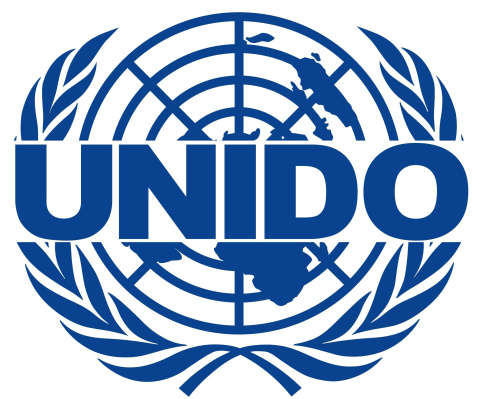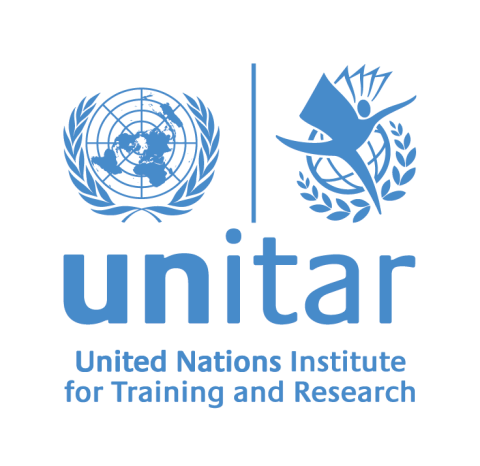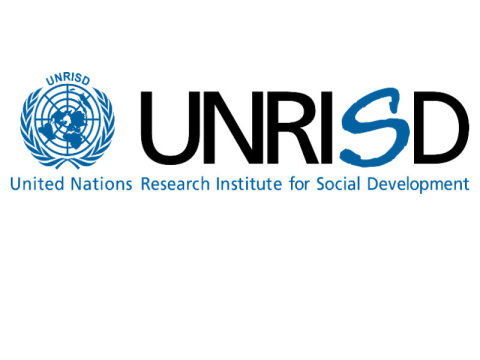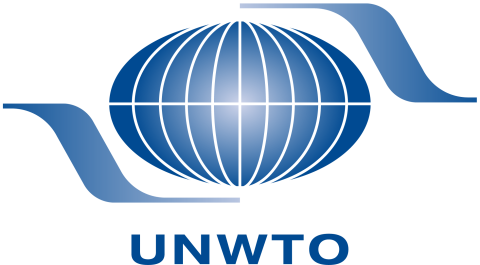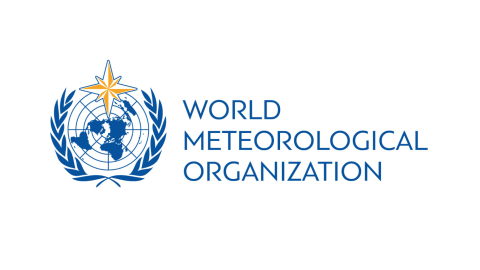
面包屑
- 此页面是使用机器翻译翻译的。 阅读全文.
什么是可持续发展目标?
追踪进度
这些目标都以简短清晰的陈述形式呈现。但如何实现“零饥饿”、“优质教育”或“可负担的清洁能源”呢?每个目标都设定了一系列具体目标,明确了我们想要实现的目标。这169个具体目标与总共248个指标相关联,使我们能够衡量每个目标的进展情况。
审查这一进展的核心机构是每年召开一次的高级别政治论坛。论坛鼓励各国定期开展国家绩效评估,接受评估的国家分享其在实现2030年议程过程中的经验、成功之处和所犯的错误。
此外,秘书长每年都会发布一份可持续发展目标报告,该报告综合了整个联合国系统、其他国际和区域组织、统计人员以及学术界和民间社会专家的意见。
根据2024年的报告,目前的进展远远低于实现可持续发展目标所需的水平。如果没有“大规模投资和扩大行动”,我们将无法实现目标。
外部评估:
大学和非政府组织等第三方实体独立跟踪各国在实现可持续发展目标方面取得的进展。其结果与联合国的评估大致相同:没有一个国家能够在2030年前实现这些目标。可持续发展目标转型中心详细概述了各国在实现每个目标方面取得的进展,以及这些进展如何对其他国家在其各自的可持续发展道路上产生积极或消极的影响。
目标5“性别平等”有九个具体目标,包括:
具体目标 5.5
确保妇女充分有效参与政治、经济和公共生活各级决策,并享有平等的领导机会
指标:
5.5.1 妇女在(a)国家议会和(b)地方政府中所占席位比例
5.5.2 女性在管理岗位上的比例
2024年可持续发展目标报告中提到:
女性在公共生活中的平等参与仍然遥不可及,而在管理岗位上,按照目前的速度,实现平等还需要176年。女性承担着不公平的无偿家务和护理工作负担,每天在这些工作上花费的时间是男性的2.5倍。[...] 来自120个国家的数据显示,从2019年到2023年,56项积极的法律改革侧重于消除歧视性法律,并建立促进性别平等的法律框架。22项改革以平等的就业和经济福利权利为中心,18项改革以制止针对妇女的暴力行为为中心。这些改革包括取消对女性在特定行业工作的限制,保障同工同酬。
时间已经过去了一半以上
国际社会只有15年的时间来彻底改变行动方针,实现全球目标。2023年,我们已走过了一半。当年的可持续发展目标报告是对中期目标的全面回顾,指出了发展差距。
造成绩效不佳的原因除了新冠疫情外,还包括新出现的战争和冲突,以及许多成员国的行动未能兑现承诺,特别是在气候融资和对中低收入国家的资金支持领域。
“除非我们现在采取行动,否则2030年议程将成为世界的墓志铭。”
安东尼奥·古特雷斯,联合国秘书长
需要立即采取行动的五个领域:
2023年中期报告提出了会员国应紧急解决的五个问题。
各国元首和政府首脑应再次承诺在国家和国际层面采取七年加速、持续和变革的行动,兑现可持续发展目标的承诺。
各国政府应推进具体、综合和有针对性的政策和行动,消除贫困、减少不平等、结束对自然的战争,重点是促进妇女和女童的权利并增强最弱势群体的权能。
各国政府应加强国家和地方的能力、问责制和公共机构,以加快实现可持续发展目标。
国际社会应在可持续发展目标峰会上再次承诺落实《亚的斯亚贝巴行动议程》,并为发展中国家,特别是处境特殊、极其脆弱的国家调动实现可持续发展目标所需的资源和投资。
会员国应推动联合国发展系统不断加强,提高多边体系应对新出现的挑战和解决2015年以来国际架构中出现的与可持续发展目标相关的差距和弱点的能力。
联合国日内瓦办事处应发挥作用
2030年可持续发展议程为秘书处的工作,乃至联合国日内瓦办事处的工作,提供了蓝图。可持续发展目标贯穿于联合国日内瓦办事处的方方面面,并在日内瓦的生态系统中激发了新的伙伴关系,加强了合作。该生态系统由100多个国际组织、180个会员国代表处、约400个非政府组织、充满活力的私营部门和知名学术机构组成。日内瓦已成为可持续发展目标在卫生、安全和人道主义事务、移民、数字政策和知识产权等广泛领域实施的重要枢纽。
“观念改变项目” (PCP)由总干事于2014年启动,并与100多个合作伙伴合作,旨在展示联合国工作对全球每个人生活的相关性和影响力,并鼓励公众参与实施2030年议程。PCP的工作成果包括“不是女人的工作”系列展览;以及一系列出版物,特别是行动手册和儿童读物,这些只是其成果的几个例子。其中一个值得关注的PCP项目是绘制日内瓦国际地图,以了解其在实现可持续发展目标方面的工作。
超越实验室 联合国日内瓦总干事办公室设有一个创新空间,探索推动可持续发展系统变革的方法。例如,“超越实验室”致力于探索超越国家GDP衡量发展水平的方法。“青年超越GDP”倡议是“超越实验室”组织的代际对话系列的一部分。“未来平衡”项目为各国政府提供了一个工具,用于识别可持续投资领域,以便子孙后代能够从政府今天的决策中受益。
联合国日内瓦办事处支持秘书长的共同议程,即他对未来全球合作的愿景。该议程呼吁包容、网络化和有效的多边主义,以便更好地响应和惠及人类与地球,并通过大力推动可持续发展目标的实施,使世界重回正轨。2024年9月举行的未来峰会是这一道路上的一个重要里程碑。其主要成果文件《 未来契约》涉及和平与安全、可持续发展、数字合作、青年与子孙后代以及人权与性别平等等不同领域。该文件规定了联合国架构的一些变革,包括安全理事会改革,但其重点在于应对即将到来的挑战,例如如何治理人工智能,并考虑子孙后代的需求。在可持续发展领域,已决定对国际金融部门进行改革,以改善对发展中国家的服务和支持。如果《未来契约》能够按商定的方式实施,它将大力推动可持续发展目标的实施,并可能成为迈向更可持续世界的关键因素。
联合国日内瓦办事处正接受联合国内部环境可持续发展倡议“绿化蓝”的审查。在此背景下,联合国日内瓦办事处致力于减少水、废物和二氧化碳的排放。
了解日内瓦国际社区为促进可持续发展目标而采取的更多举措
致力于可持续发展目标的组织
叙利亚国际公正独立机制 (IIIM) 于 2016 年 12 月由联合国大会设立,旨在协助调查和起诉自 2011 年 3 月以来在阿拉伯叙利亚共和国犯下国际法规定的最严重罪行的责任人。
IIIM 是一个司法调解人,致力于追究 2011 年 3 月以来在阿拉伯叙利亚共和国犯下的核心国际罪行的责任,特别是战争罪、危害人类罪和种族灭绝罪。它收集、保存和分析信息和证据。然后,它应要求或主动与主管司法管辖区共享与正在进行的调查相关的材料和分析产品。 IIIM 没有起诉权。相反,它协助那些牵头调查和起诉叙利亚犯罪嫌疑人的司法管辖区。
联合国开发计划署是致力于结束贫困、不平等和气候变化的不公正现象的领先联合国组织。该机构与 170 个国家/地区的广泛专家和合作伙伴网络合作,帮助各国为人类和地球构建综合、持久的解决方案。
UNDP 日内瓦办事处是 UNDP 日内瓦和总部设在日内瓦的组织的平台,也是与法国和瑞士政府的主要联络点。自 2014 年 10 月以来,联合国开发计划署日内瓦办事处作为综合伙伴关系办公室,跨方案和代表职能开展工作。它确定、建立和发展开发署的机构能力,以加强广泛合作伙伴之间的战略伙伴关系,主要是与方案国和捐助国、联合国系统、非政府组织和民间社会组织、私营部门、政府间组织、国际金融机构、区域银行 [...]
联合国欧洲经济委员会 (UNECE) 由 ECOSOC 于 1947 年成立。它是联合国五个区域委员会之一。其主要目标是促进泛欧经济一体化。
裁军事务厅日内瓦办事处协助会员国支持其裁军、军备控制和不扩散努力,以实现在严格有效的国际监督下实现全面彻底裁军的目标。
该处为范围广泛的多边裁军协定、方案和会议提供实质性和组织性支持以及联络服务,例如(仅提供英文链接):
UNRISD 是联合国系统内的一个自治研究机构,对当代发展问题的社会层面进行跨学科研究和政策分析。 UNRISD 与来自发达国家和发展中国家的学术、政策、从业者和活动家社区的广泛合作伙伴网络合作,旨在将社会公平、包容和正义置于发展思想、政策和实践的中心。



















